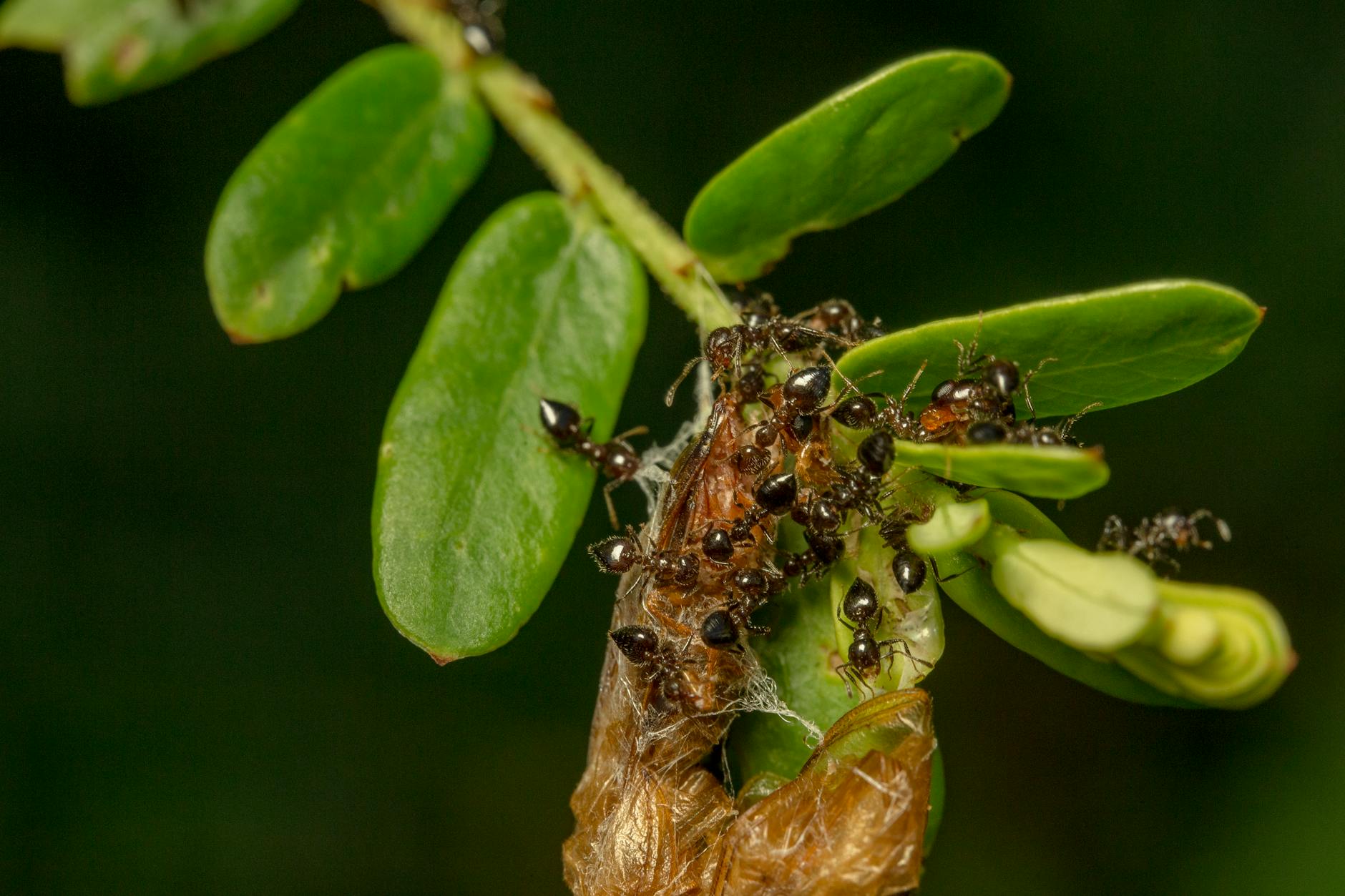Collective nouns for ants represent fascinating linguistic tools that help us describe these remarkable social insects in their various groupings and organizations. These terms reflect not only the quantity of ants but also their behavior, purpose, and social structure within their complex communities.
Primary Collective Nouns for Ants
Colony
The most common and scientifically accurate term, a colony describes an organized community of ants living together.
“The colony of fire ants constructed an intricate network of tunnels beneath the garden soil.”
Army
An army typically refers to a large group of ants moving together, especially when foraging or defending territory.
Nest
A nest describes both the physical structure and the community of ants inhabiting it.
Scientific Classifications
| Term | Usage Context | Common Application |
|---|---|---|
| Supercolony | Multiple connected colonies | Argentine ants |
| Satellite Colony | Secondary nest location | Carpenter ants |
| Daughter Colony | New colony from parent | Various species |
Specialized Groups
Different terms describe specific ant groupings based on their roles:
- Brood: Collection of eggs, larvae, and pupae
- Swarm: Flying ants during mating season
- Legion: Large group of worker ants
- Patrol: Defensive group of soldier ants
Behavioral Classifications
Social Structure
The organization within ant groups is highly specialized:
- Workers: The majority of the colony
- Soldiers: Defensive specialists
- Queens: Reproductive leaders
- Drones: Male reproductive ants
Activity Patterns
| Group Type | Primary Function | Common Term |
|---|---|---|
| Foraging Party | Food collection | Scout group |
| Defense Force | Colony protection | Guard patrol |
| Nursery Group | Brood care | Tender team |
| Construction Crew | Nest building | Builder corps |
Ecological Significance
Environmental Impact
Ant groupings serve vital ecological functions:
- Ecosystem engineering: Soil aeration and enrichment
- Population control: Predator-prey relationships
- Nutrient cycling: Organic matter decomposition
- Plant propagation: Seed dispersal
Symbiotic Relationships
Different ant groups form specialized relationships:
“The colony maintains a complex partnership with aphids, protecting them in exchange for honeydew”
Scientific Terminology
Research Classifications
Scientists use specific terms to describe ant groupings:
| Scientific Term | Description |
|---|---|
| Polydomous colony | Multiple nest locations |
| Monogynous colony | Single queen system |
| Polygynous colony | Multiple queen system |
| Unicolonial structure | Supercolony formation |
Cultural and Historical Perspectives
Traditional Views
Different cultures have unique terms for ant groups:
| Culture | Term | Meaning |
|---|---|---|
| Ancient Greek | Myrmex host | Warrior band |
| Native American | Earth dwellers | Communal group |
| African | Wise ones | Organized society |
Literary References
Ant collectives in literature often symbolize:
- Industry: Hard-working communities
- Organization: Social structure
- Persistence: Determined groups
- Unity: Collective strength
Specialized Group Activities
Seasonal Behaviors
Different terms describe seasonal ant groupings:
- Swarm: Mating flight participants
- Hibernation cluster: Winter grouping
- Migration column: Relocating colony
- Expansion party: New territory seekers
Task-Specific Groups
| Group Name | Primary Task | Composition |
|---|---|---|
| Scout team | Food location | Experienced workers |
| Nursing corps | Brood care | Young workers |
| Defense force | Territory protection | Soldier ants |
| Construction crew | Nest building | Worker ants |
Modern Scientific Understanding
Research Classifications
Contemporary studies identify specific group types:
“Scientists observed the foraging party utilizing complex pheromone trails to coordinate their efforts”
Population Dynamics
Understanding group sizes and structures:
- Minimal colony: Few hundred members
- Optimal colony: Several thousand members
- Supercolony: Millions of individuals
- Global colony: Interconnected populations
Example Sentences with Collective Nouns
- “The colony of carpenter ants established their headquarters in the old oak tree.”
- “An army of fire ants marched determinedly toward their new nesting site.”
- “The swarm of flying ants emerged during the warm summer evening.”
- “Scientists studied the supercolony of Argentine ants spanning multiple continents.”
- “The patrol of soldier ants defended their territory against invading insects.”
- “A legion of worker ants efficiently transported food back to their nest.”
- “The brood chamber contained thousands of developing ant larvae.”
- “The foraging party discovered a rich food source in the garden.”
- “A satellite colony of red ants established itself near the parent nest.”
- “The migration column moved steadily through the underbrush.”
- “The construction crew of ants worked tirelessly to repair storm damage.”
- “A scout team of ants explored the perimeter of their territory.”
- “The nursing corps tended to the developing larvae with great care.”
- “An impressive defense force guarded the colony’s main entrance.”
- “The hibernation cluster survived the harsh winter months.”
- “A daughter colony split from the main group during spring.”
- “The expansion party sought suitable territory for new settlement.”
- “The polydomous colony maintained multiple interconnected nests.”
- “A tender team carefully relocated the eggs during the flood.”
- “The guard patrol monitored the colony’s boundaries throughout the night.”
Key Takeaways
Collective nouns for ants reflect the complexity and organization of these remarkable insects. From scientific terminology to cultural interpretations, these terms help us understand and describe ant behavior, social structure, and ecological roles. The variety of collective nouns demonstrates the sophistication of ant societies and their importance in both natural systems and human understanding.
